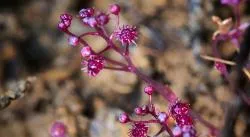The BCG drug shows in humans a recovery of insulin production in DM1
A phase I trial with the BCG generic drug (Calmette-Guerin bacillus, used in tuberculosis and bladder cancer), presented in the ADA, has shown promising results in the treatment of advanced type I diabetes.
Denise Faustman, director of Immunology at the Massachusetts General Hospital, has presented two studies in Congress described in humans of the elimination of DM1 in a mouse model and explains why antibody -based therapy has notworked so far.
Faustman points out that even BCG's low doses could reverse the disease in humans.The development of a method to measure the elimination of autoreactive T cells, which destroy insulin production in the pancreas, is one of the keys to work.In patients with more than a decade affected by the disease, a recovery of insulin production has been proven.The BCG raises the TNF factor levels, capable of eliminating cells responsible for the disease in animal and human model.
The participants in the study have been treated with two BCG or placebo injections.The results have been compared with samples of six non -diabetic people and with samples of 75 affected from DM1.In the trial, the levels of autoreactive T cells, gad and peptide antibodies C. Treaties with BCG show an increase in the elimination of authorship cells and protective regulatory T cells, in addition to an increase in peptide levelsC, which suggests a recovery of insulin production.The authors have observed that these results are also produced in people from the control group that, casually, developed infection by the Epstein-Barr virus, which induces TNF expression.
Faustman believes that the hypothesis that BCG can improve the DM1 enhanced TNF levels gain strength: "The data of patients infected with the Epstein-Barr virus show that the induction of TNF expression could be a forgotten factor in two recent trialsWithout success in phase III in which antibodies were tested against the CD3 immune molecule in DM1 ".These works were developed to specifically avoid reactivation of latent infections by this virus, but blocking virus activation could also block TNF expression. "


